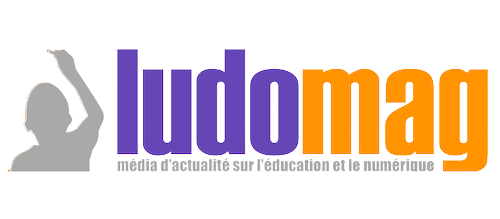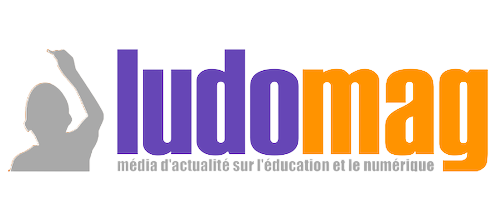During the last Educatech Expo in Paris last November, we met Isabelle Masseran, Deputy Director of the Office for Digital Innovation Support and Applied Research, and Patrice Renaud, Project Manager for Edu-Up and Support for Innovative and Inclusive Resources for Schools. Thanks to them, and for those who are not yet familiar, we offer an introduction to the Edu-up initiative, which aims to support an entire sector, particularly around digital content and resources for schools.
« Edu-up is a support system for the production of digital resources for schools (RNE), » explains Isabelle Masseran.
RNEs are defined as content and associated services or digital tools designed for teaching and learning activities, directly linked to the acquisition of knowledge and skills by students as defined in the national education reference documents*.
« Once you have a project proposed on Edu-up, you receive analyses conducted by experts in pedagogical, economic and financial, technical, and legal aspects, » she adds.
Edu-up, for whom, for what?
« It is a system that is open to companies known as startups, hence the name Edu for education and up to recall the term ‘Start-up,’ just like the initials of Pedagogical Uses; but in addition to companies, we also support associations or self-employed individuals, knowing that the most important thing for us is pedagogical uses, » Patrice Renaud reminds us.
There are three commissions per year, and around twenty applications are selected annually. Another interesting point to note is that there is an increasing number of requests for this initiative.

The commission includes representatives from both public and private publishers, stakeholders in industrial innovation for education, as well as experts in digital education, teaching, and research, representatives from the Inspectorate General, the network of academic delegates, various departments of the Ministry of Education, and those of the Ministry responsible for the economy.
It provides recommendations based on the expertise provided on the submitted projects.
« The advantage of the Edu-up initiative is that it is a flexible vehicle that adapts to all types of companies or associations. Nevertheless, we have well-targeted themes, » describes Isabelle Masseran.
Meeting specific themes and fulfilling certain obligations
Among these themes, we find Artificial Intelligence, Inclusive Education, contents and associated services promoting simulation, immersion, and virtualization of learning objects, as well as contents and associated services fostering collaborative work among students and/or teachers.
What is important to remember is that these themes also evolve according to the needs of students and teachers in the classroom.
« We are therefore very vigilant during the expertise process regarding this alignment, this understanding of the ecosystem, and our level of demand is quite high, » emphasizes Patrice Renaud.
He also adds that the level of demand is also present in terms of obligations: compliance with school programs, the school framework, digital accessibility for people with disabilities, GDPR compliance, a connection to the GAR (Single Authentication Gateway) is strongly recommended, etc.
For us, it’s a guarantee of having resources that are usable in the classroom, within a framework of security and trust.
Patrice Renaud
What support does the Edu-up initiative provide?
First and foremost, the Edu-up initiative offers financial assistance. This can amount to a maximum of 70,000 euros, as specified by Isabelle Masseran: « 70,000 euros is the maximum amount you can claim, and it’s on a 50/50 basis, meaning the company or organization must invest as much as the Ministry’s aid.«
The financial objective has a dual purpose: to develop digital resources for schools « but also a desire to encourage small businesses to grow in order to structure an entire education and digital sector that France needs today.«
Within the Edu-up initiative, there’s a real emphasis on the project presenting a new product, a prototype, or an innovative usage; there’s a notion of novelty that is extremely important.
Isabelle Masseran
Is the project holder supported by the DNE?
Support begins before the project is submitted, as Patrice Renaud explains: « We are keen to know, beforehand, the people who will be submitting the applications, so that we can assist them as best as possible and with the aim of minimizing rejections as much as possible. »
Once the grant is awarded, the DNE teams monitor the project’s progress and assist in its dissemination.
« We will ensure, over 2-3 years, that the project progresses as planned and we will support, especially the smaller structures as they are the most vulnerable, » he adds.
Validation through research: scientific monitoring of all projects
Finally, scientific feedback is also a very important component of the initiative. « In each application, it is mandatory to link the projects to research with a scientific advisory board that can monitor the project in the classroom and produce a certain amount of data, » Patrice Renaud adds.
A project supported by Edu-up enters the classrooms, so there’s always a co-construction part with the teachers, for the teachers and students, so that’s a real hallmark.
« A project supported by Edu-up opens doors. » This will be the concluding remark from our duo, Isabelle Masseran and Patrice Renaud.








